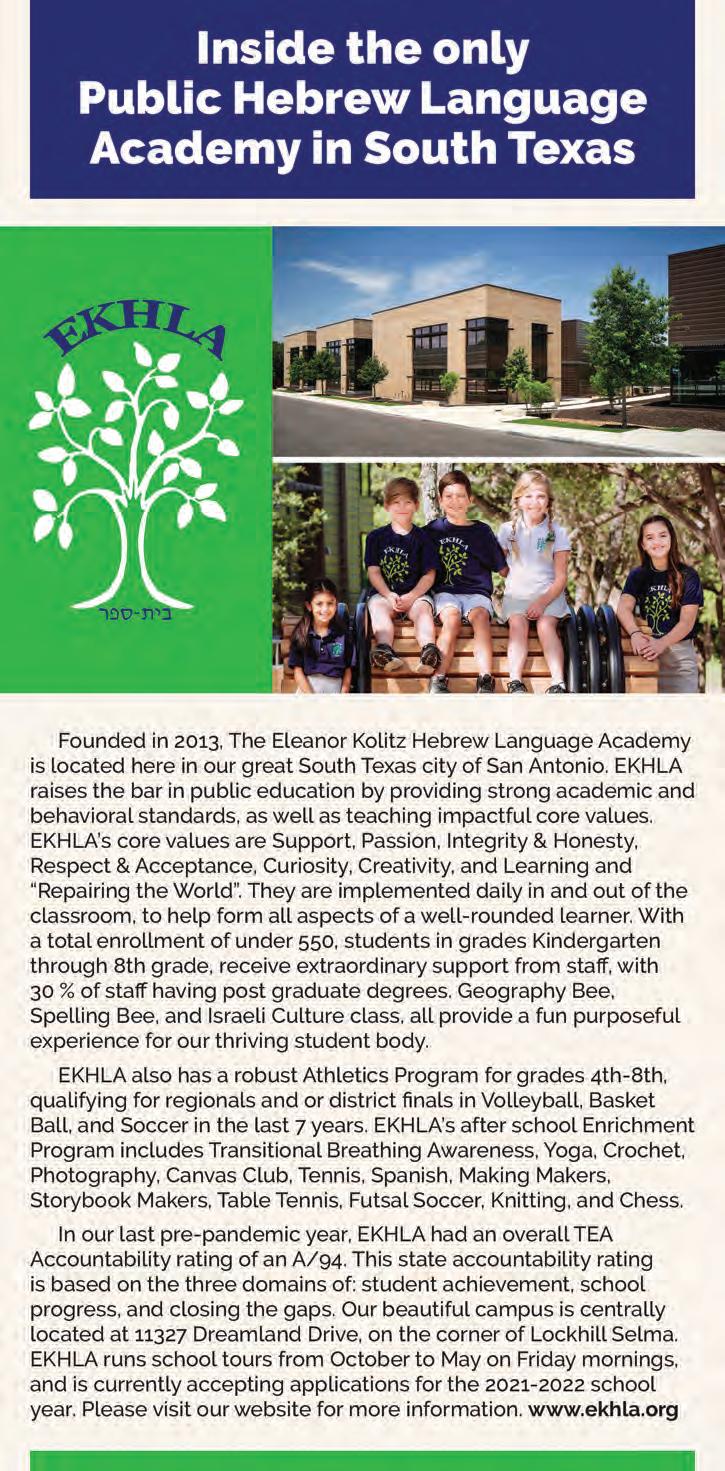
3 minute read
CITY NEWS
Still in the Storm
The city’s public health system has learned lessons from COVID-19, but it hasn’t reached the finish line yet
Advertisement
BY JADE ESTEBAN ESTRADA
B
etween staff turnover, the politicization of mask wearing and vaccines, and the long hours required to respond to the COVID-19 pandemic, it’s no secret that public health departments have been under stress for the last two years.
In San Antonio, though, City Manager Erik Walsh and Metro Health Director Claude Jacob say they’re moving forward with lessons that will help the city prepare for the next pandemic and for serving the community as a whole, even as it continues to live with COVID-19.
“We have a better handle on how to better prepare, better exercise, better coordinate across those different agencies,” says Walsh. “We need to make a difference so that when somebody’s asking the city manager 25 years from now, ‘Are you prepared?’ I want him or her to be able to say, ‘Yeah, I’m prepared, because things got put into place immediately during COVID.”
Like when fire departments expanded their public safety efforts to include mental health and other peripheral issues following 9/11, public health departments are also learning they need to broaden their approach. Jacob says between the pandemic and protests following the murder of George Floyd, it’s become even more clear that equity, social justice and socioeconomic factors can’t be separated from the community’s physical and mental health. “COVID has been an exacerbator and accelerant of conditions,” Jacob says, adding that issues of food, job and housing insecurity have been magnified during the crisis. “Place matters. Our zip code matters.”
Public health has been historically under-resourced, and Jacob applauds the city for investing in the infrastructure of Metro Health. An increase of $16.3 million in this year’s budget will help the organization begin to more intentionally address those socioeconomic factors and health disparities that were heightened and brought to the forefront during the pandemic.
To do that, money will be used to focus on things like increasing access to care, technology/infrastructure in certain neighborhoods, paying attention to health justice, violence prevention and mental health, all areas that cannot be separated from physical health, Jacob says.
The increased budget also will allow for more funding to existing programs like Metro Health’s STD Clinic, Lactation Support Center and Diabetes Prevention and Control Program.
“We’re evolving,” says Jacob, who celebrates six months in San Antonio in January after working in COVID response in Cambridge, Massachusetts. “Our agility has been our best asset on the ground. There is a Darwinian process afoot where the strongest health departments are staying alive. We’re still learning. We’re applying. We’re still building this plane while flying it, so the verdict is still out, but we are investing now in order to position ourselves.”
It’s a Boy! / And a girl. At the San Antonio Zoo, 10 Komodo dragons— including two male, four female and four yet-to-be-determined dragons—hatched in late 2021. Komodo dragons were downgraded from a vulnerable species to an endangered one last year as there are less than 1,400 mature Komodo dragons left in the world. The births are part of the zoo's participation in a conservation program.
Supply Chain Woes / After nearly a decade in business, San Antonio Bike Shop closed its store on Broadway in December, with its owner saying it could no longer financially stay in business due to the now 18-month-long national shortage of bikes and bike parts.
Pizza Kiosk / San Antonio International Airport became the first airport to house a Basil Street Pizza kiosk. The automated, cook-to-order vending machine is fully robotic.
Astroworld Attorney / San Antonio attorney Thomas J. Henry and his firm are representing over 200 clients in a lawsuit filed against Travis Scott, Drake, NRG Stadium and Live Nation following the Astroworld festival in Houston, where 10 people died and dozens were injured.
Home Sweet Home / Six years after she initially went missing, a San Antonio cat named Monkey Face was returned to her family. Animal Care Services picked up the cat in December after receiving a call about a stray cat that appeared sick. While treating Monkey Face, ACS staff realized that she had a microchip, which helped them to track down her owners and reunite the feline with her family.











